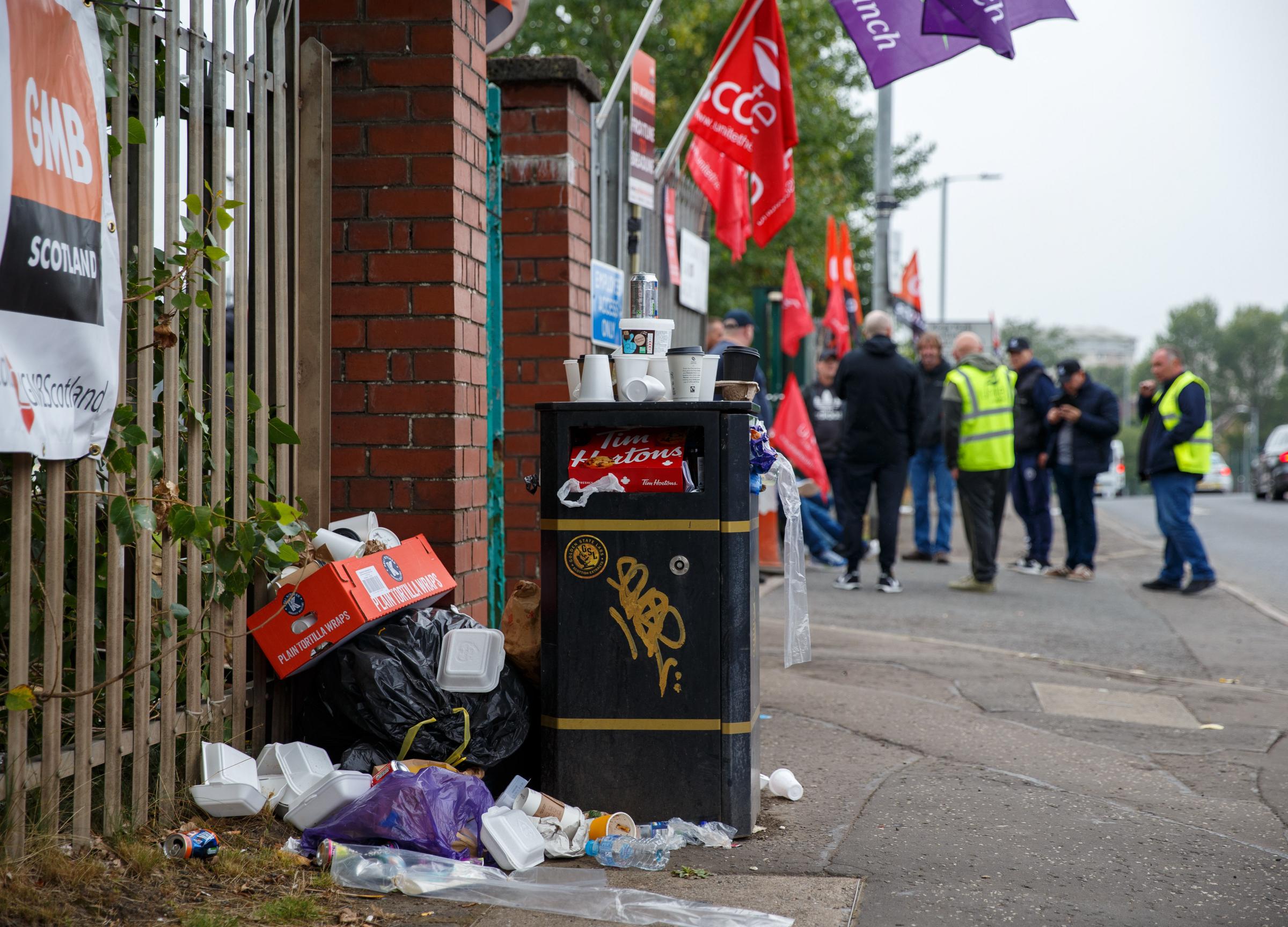
IT STARTED in the capital with overflowing bins and litter-strewn streets but by the weekend, cleansing workers at 20 different Scottish councils had agreed to strike in a momentous battle for fair pay.
“The strike is solid”, one union official said, as more departments are expected to take to picket lines over the coming months. Education staff in schools and nurseries at seven authorities have agreed to go on strike in September, and it emerged that their social care colleagues have been “demanding” a ballot on a walk out of their own.
Unions blasted the initial 3.5% pay offer put on the table by Cosla last week, which the SNP would later blame on Labour and Tory council leaders who voted it through, setting the wheels in motion for the first wave of more industrial action to come.
The 5% offer that came on August 19, a day after cleansing workers in Edinburgh stopped collections, was also later rejected by union negotiators. With inflation predicted to rise above 13% by the end of the year, according to the Bank of England, those on picket lines told the Sunday National that anything less is effectively a pay cut.
By Monday, five days into the strike, the headlines were full of Edinburgh’s now dirty litter-strewn streets, and SNP politicians in the capital were taking aim at Labour over the mess, insisting that a 5% pay offer at the start could have averted the industrial action taking place during the Fringe.
The number of tourists visiting the city undoubtedly had an impact, with bins at each entrance to Waverley Station overflowing within days of the strike and similar scenes playing out across the usually spotless city centre.
Businesses were impacted too. Scott Dickson, owner of an ice cream stall in the Grassmarket, told The National on Monday he was losing customers due to a gargantuan and foul-smelling pile of rubbish outside of his stall, and by the next day he had shut up shop.
Yet Unionist MSPs were happy enough to pose in front of the same mess for a photo-op with placards blaming the SNP and Greens for “Throwing Edinburgh’s reputation in the bin” on Wednesday.
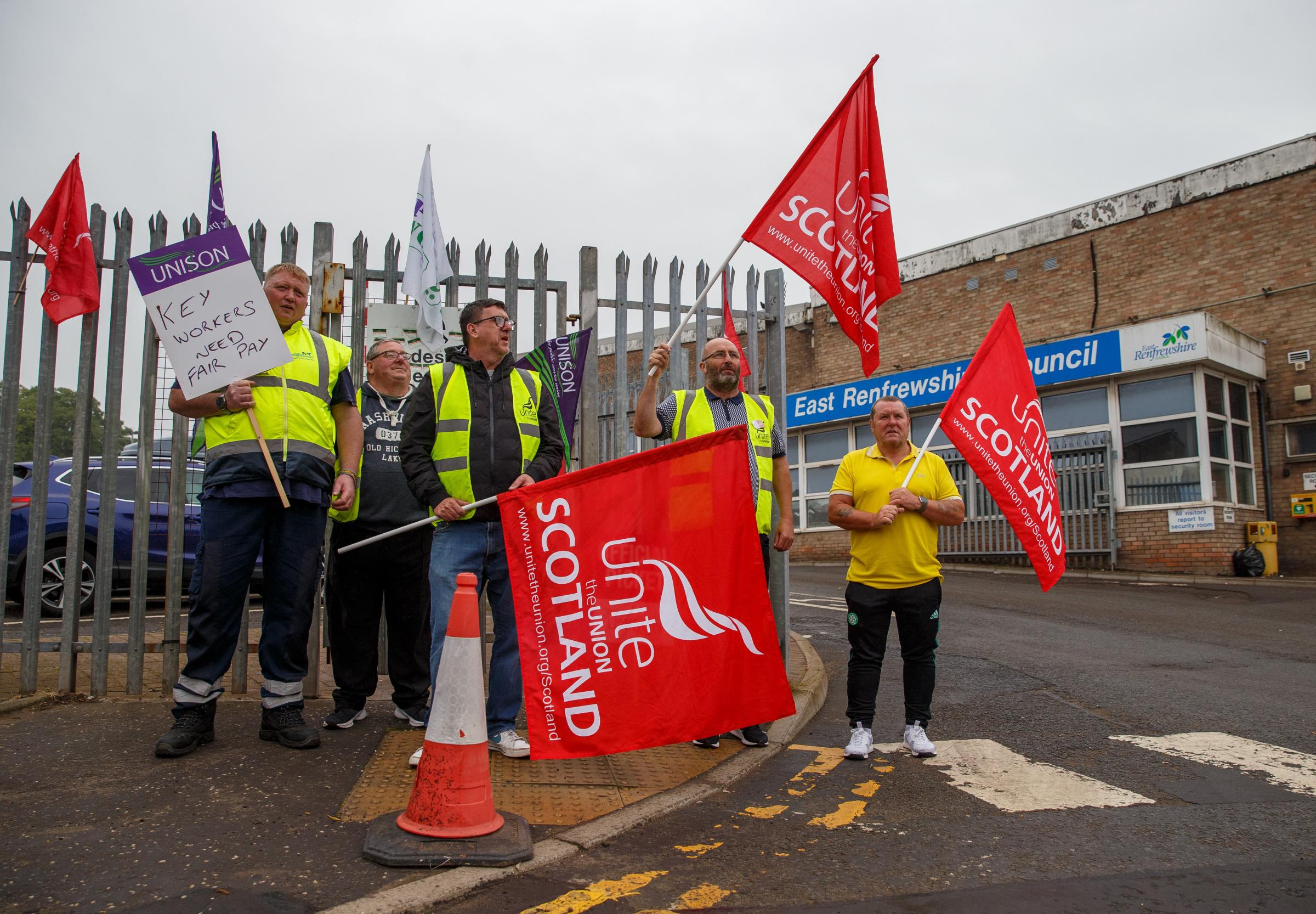
Alex Cole-Hamilton, LibDem leader, was joined by Labour’s Foysol Choudhury and Daniel Johnson, and Tories Miles Briggs and Sue Webber for the stunt – but they were heckled by the public who pointed out that Labour is currently in administration in Edinburgh, backed by Tory and LibDem votes.
Meanwhile, deputy first minister John Swinney told the Scottish political lobby during the annual GERS announcement that he blamed non-SNP members of Cosla for allowing the row to escalate, pointing out the government’s fixed budget while adding that the £140 million they put on the table will not be “pain-free” and must come from other departments.
The council umbrella body had initially asked for £277m, with opposition politicians and union leaders blaming consistent under-funding of local authorities under the SNP for allowing the dispute to get as far as it has.
By Thursday, strikes were confirmed in waste services across 20 Scottish councils and school and nursery staff in seven local authorities will join the joint action in September.
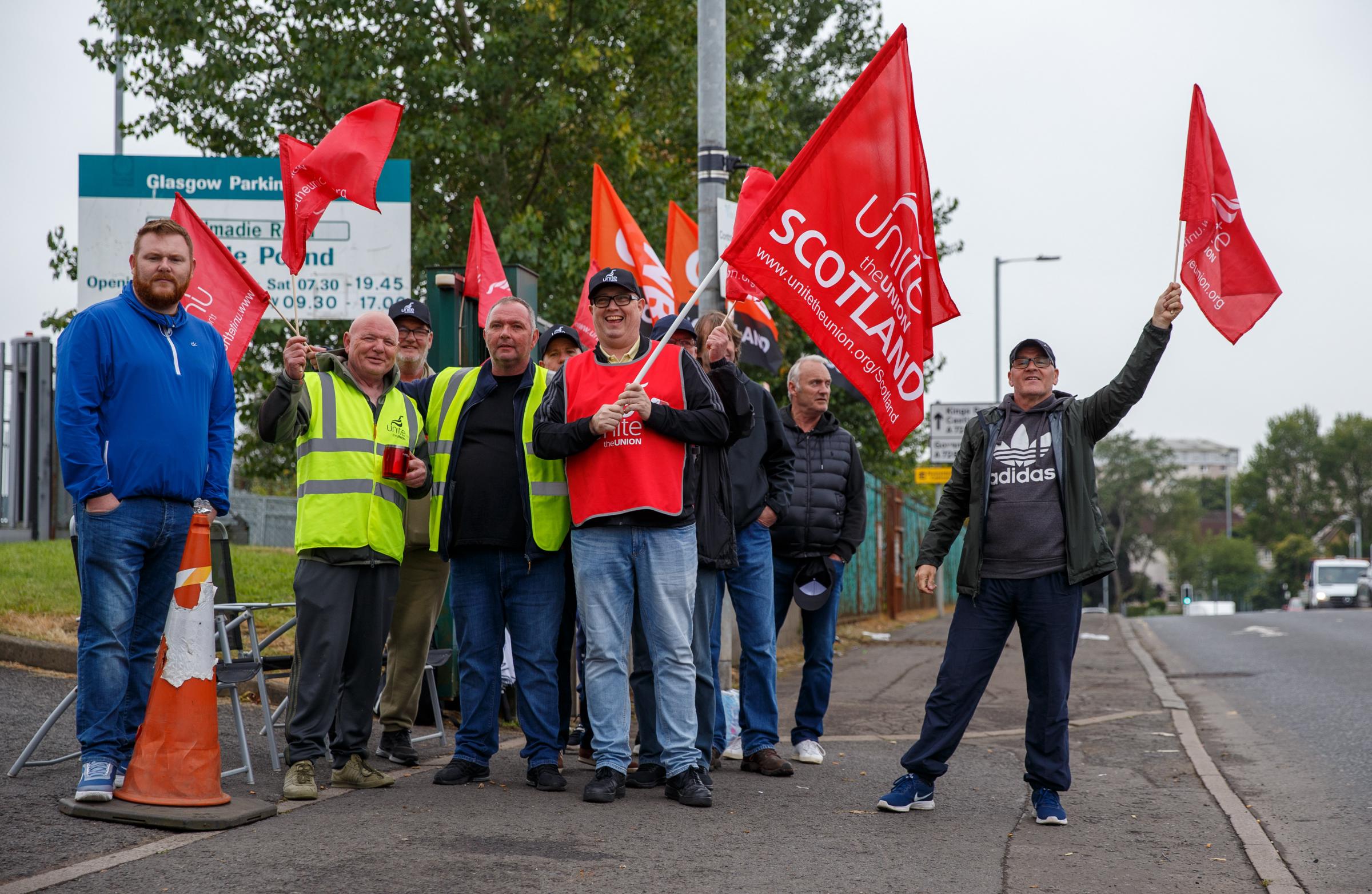
The biggest day of picketing came on Friday across a number of councils under different political control.
In Thornliebank, East Renfrewshire, a Labour minority council, Deborah Clark, regional officer for Unison, said it was a difficult decision but members felt they “had no choice”.
She added: “I think a number of things have aligned to make this a really difficult situation for them [Scottish Government], but they seem to find the money for the NHS.
“Now they need to think about the local government workers, who worked all the way through Covid, continue to work in difficult times and yet we don’t seem to think they’re worth money and that’s got to stop.
“I think this was inevitable because they failed to properly fund local government.”
James O’Connell, Unite’s regional officer, added: “They [cleansing workers] made sure that each and every single local authority was kept going throughout this pandemic and that needs to be recognised.”
PAT Strain, Unite shop steward in the Polmadie depot in the southside of Glasgow, an SNP minority, said picketers had genuine support from the public, with some dropping off cake and biscuits for them, and those driving along the busy road outside of the recycling centre frequently beeping their horns in solidarity.
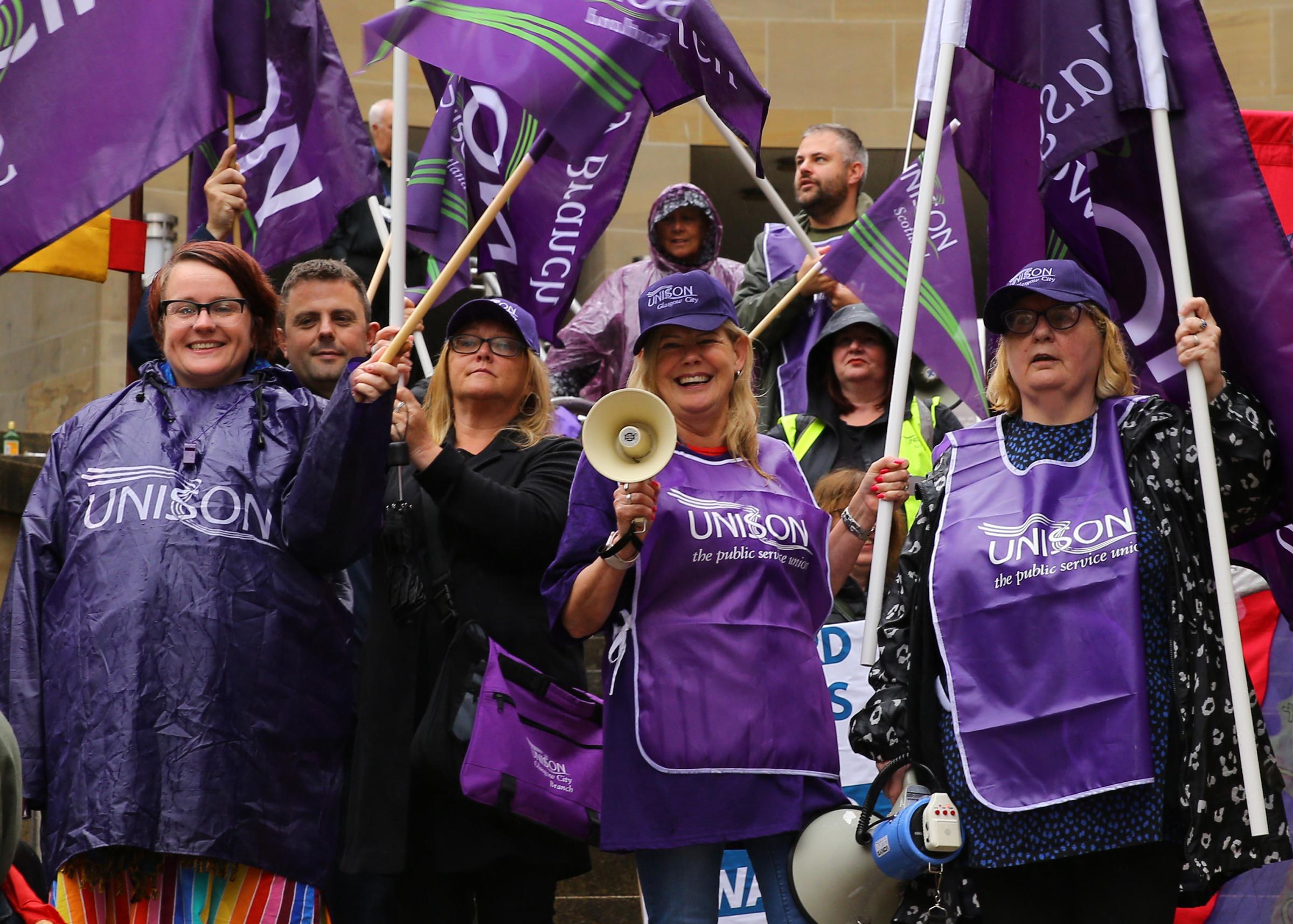
The HGV night shift driver said that anything not in line with the rate of inflation is “basically a pay cut” and he expected a “realistic” offer from Cosla to end the dispute.
He told the Sunday National: “The guys can’t take any more of this, these are the guys who are on the lowest paid grades on the council.
“The energy prices are going up and everything else is going up, the big shops then pass it on to the customers, they don’t take the hit for it.
“Rents are going up, fuel’s going up, everything. People have to get to their work, and it’s putting a lot of people in poverty.
“We’ve even got people going to food banks, which is really sad.”
Strain also raised the amount offered to council employees in England in July – a pay increase of £1925, equivalent to 10.5%. He added: “Why are they discriminating against us, do we not do the same job as them?”
After Friday morning’s picket line had ended, some union members in Glasgow and the surrounding areas headed to the city centre for a rally, with members from Unite, Unison, GMB, RMT, CWU, and Living Rent taking their campaign to one of Scotland’s busiest shopping streets.
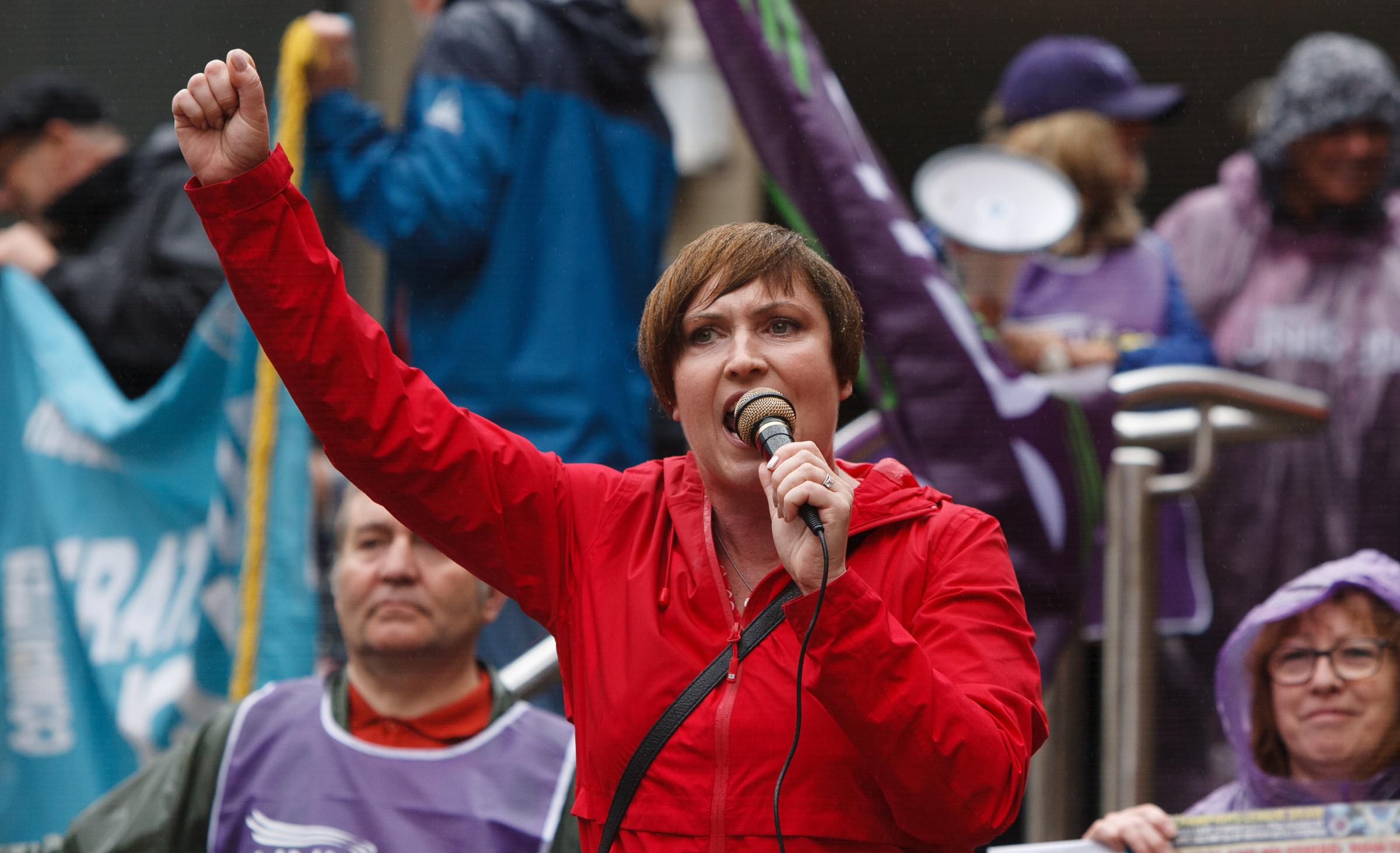
Speaking after the rally, Roz Foyer (above), STUC general secretary, told The National that the “passing the buck” between Cosla and the Scottish Government over the pay dispute was “really regrettable”.
Adding that with the Westminster Government “missing in action” while the Tory leadership contest is underway, the country is facing a “national emergency” with the cost of living crisis, as it emerged that the energy prices will rise by 80% in October, with the average yearly bill soaring from £1971 to £3549.
Foyer told the Sunday National: “I can’t stress how much we’re facing a humanitarian crisis here with this energy crisis if we don’t do something.
“Yet there’s no sense that we should be having an emergency general election so people can choose their government. Meanwhile, the councils blame the Parliament, the Scottish Parliament blames Westminster and they are passing the buck round and round.
“At the end of the day, we need all of these bodies to prioritise the people and make sure that ordinary working people get money in their pockets, because if we don’t manage to do that, then we’re facing an economic collapse.”
The Scottish Government and Cosla have been contacted for comment.







